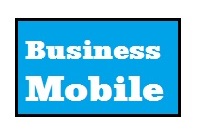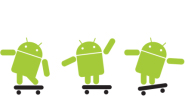More than 65,000 devices running the Google’s Android operating system are shipped every day, according to Google chief executive Eric Schmidt and Google has plans for the platform to be number ‘one or two’ player in the market.
Schmidt, speaking at Google’s annual shareholder meeting at the company’s headquarters in Mountain View, California, said the open-source Android system is now being used on 34 mobile devices in 49 countries.
“It looks like Android is going to be either the number one or number two player” in the mobile phone market, he said at the meeting which was streamed live on Google-owned YouTube.
“Our partners are shipping about 65,000 Android handsets per day but if you check the blogosphere you’ll discover there are some reports that that number might be quite low,” Schmidt said.
So let’s look at that figure. 65,000 a day sounds a lot, but it’s not actually that big a figure compared to some of the big players in the market. 65K a day is 1.977 million a month and 23.7 million a year which is a drop in the ocean when it comes to the mobile market. So what are you trying to prove here Eric? Do your sums. Yes as you say “sales of more than two million Android handsets a month would approach those of Google rival Apple, which reported sales of 8.75 million iPhones last quarter.” But if you look at Nokia’s sales that’s peanuts.
“Our strategy is very different from everybody else’s,” Schmidt said of Android. “We license our code for free, so that’s really pretty revolutionary.
“We’re trying to build an entire ecosystem of openness, the inverse of the other guys,” he said, without mentioning Apple by name.
Google co-founder Larry Page, who also attended the meeting, said the strategy of getting more devices running Android provides benefits “through more (Google) searches and other things that we do.
“I think you’ll see that as those products mature we’ll figure out how to make more money from them,” Page said.
Schmidt agreed, saying “while it’s true that we’re very happy to give away Android, the applications and the services that can be provided on a very large, very broad framework can be enormously valuable over the next five or 10 years.”
There’s no doubt that Android will become the number one or two in the Smartphone market in the next year, but it has to do better than 23.7 million sales a year before it’s going to get even a third of the publicity that the iPhone has and before it starts to rival Nokia and Symbian. Let’s not forget, Apple has just a 2.9% market share in the mobile market, where as Nokia has 34% market share.

